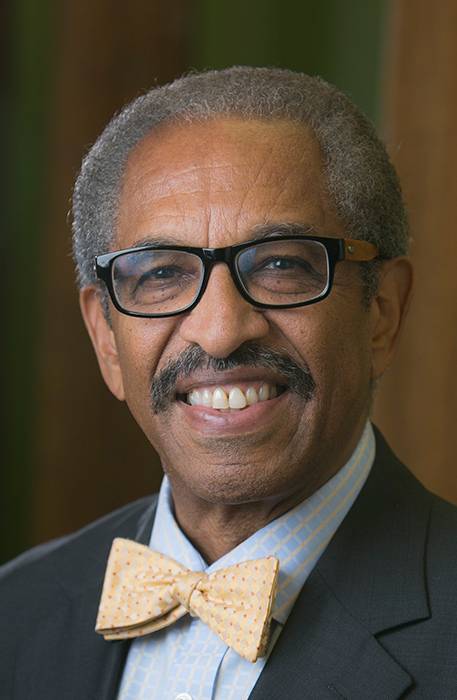Ben Reese to Leave Post as Vice President for Institutional Equity in 2019
 After more than two decades of leadership in promoting diversity and equal opportunity at Duke University and the Health System, Benjamin D. Reese Jr. will step down as vice president for institutional equity at the end of the current academic year in 2019.
After more than two decades of leadership in promoting diversity and equal opportunity at Duke University and the Health System, Benjamin D. Reese Jr. will step down as vice president for institutional equity at the end of the current academic year in 2019.
Reese joined Duke in 1996 in the Office of Institutional Equity (OIE). He was named interim vice president in 2005; the title was made permanent the following year by then-President Richard Brodhead.
“I’ve been fortunate to work with incredible colleagues here at Duke,” Reese said in an interview. “I’ve also had the opportunity to work at one of the top educational and health care organizations in the United States and abroad. And I’ve had the privilege to serve with three outstanding presidents.”
Reese has been most visible as part of large campus efforts to tackle challenging issues of equity, from diversity in faculty and staff hiring to how the university handles sexual harassment cases. However, much of his work has been more “under the radar,” building an infrastructure around the campus to allow faculty, staff and students to engage on the issue of diversity and to promote a more equitable institution. For example, he created the Duke Diversity Leaders and Facilitators Group, involving employees from across the campus who play leadership roles in coordinating diversity and inclusion efforts across the institution.
University officials said Reese’s leadership proved valuable during moments of crisis or discord in the community. In one instance, in 2016, OIE organized a forum following racially tinged shootings in Louisiana, Minnesota and Dallas in which more than 100 employees and students came together in Smith Warehouse to express their grief and sadness and share their ideas about building a better community here at Duke.
“Throughout Ben’s 22 years at Duke, he has been a counselor, a mediator, an educator and a source of wisdom and direction to countless students, faculty and staff,” said President Vincent Price. “In ways large and small, Ben has helped Duke become a better, stronger and fairer community. On behalf of everyone he has worked with at Duke, I am so grateful for his service and proud to have served alongside him.”
Reese praised university officials for underscoring the role diversity and inclusion plays in academic excellence. He noted how the discussion about diversity has grown to emphasize that essential role.
“In past two decades, there was real activism around the necessity of increasing diversity for ‘moral reasons,’ and as a way of pushing back against structural racism, gender inequities, and homophobia,” said Reese, a licensed clinical psychologist who holds adjunct faculty position in the Departments of Community & Family Medicine and Psychology and Neuroscience.
“The engrained, sometimes implicit, aspects of racism, as well as the other -isms, are still a major challenge for our society. but, it took mounting research to demonstrate that, in addition to what many call the ‘moral imperative,’ there are positive educational and social benefits, as well as critical business outcomes, that depend on diversity and inclusion. Simply put, in today's environment, characterized by individuals and groups who vary along a host of dimensions, living and working in a highly fluid and rapidly evolving global context, successful outcomes require ‘diversity.’”
In addition to mentoring numerous staff and faculty over the years on issues of diversity and inclusion, Reese’s expertise on implicit bias is internationally known, and he has regularly spoken on the subject at other universities and institutions, including the Pentagon and the Department of Justice.
Nationally, he held leadership roles in several professional organizations, including serving as a founding member and past president the National Association of Diversity Officers in Higher Education. His role there allowed him to serve as an ambassador for Duke to other American institutions and to educational and diversity officials in Brazil, Ghana, Belize, Cuba, Australia,and elsewhere. He recently received a fellowship to lecture in New Zealand when he steps down as vice president.
While he looks forward to having extra time, he is adamant that “this is not retirement. I want to step back and enjoy life, engage in some interesting projects, but part of that is I hope I can continue to contribute to Duke in any way I can be useful.”